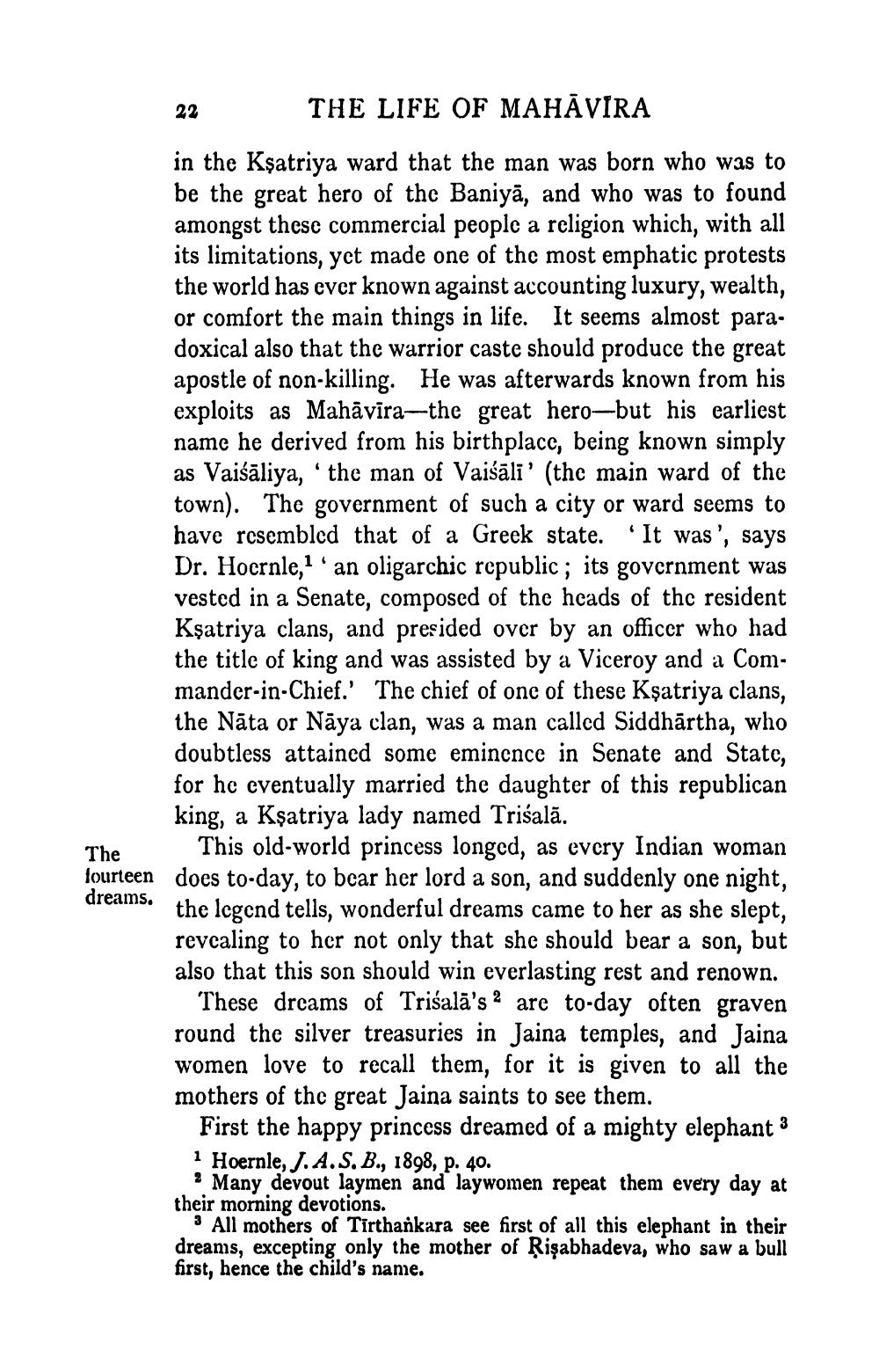________________
THE LIFE OF MAHAVIRA
"
in the Ksatriya ward that the man was born who was to be the great hero of the Baniya, and who was to found amongst these commercial people a religion which, with all its limitations, yet made one of the most emphatic protests the world has ever known against accounting luxury, wealth, or comfort the main things in life. It seems almost paradoxical also that the warrior caste should produce the great apostle of non-killing. He was afterwards known from his exploits as Mahavira-the great hero-but his earliest name he derived from his birthplace, being known simply as Vaiśāliya, the man of Vaisali' (the main ward of the town). The government of such a city or ward seems to have resembled that of a Greek state. It was', says Dr. Hoernle, an oligarchic republic; its government was vested in a Senate, composed of the heads of the resident Ksatriya clans, and presided over by an officer who had the title of king and was assisted by a Viceroy and a Commander-in-Chief.' The chief of one of these Ksatriya clans, the Nāta or Naya clan, was a man called Siddhartha, who doubtless attained some eminence in Senate and State, for he eventually married the daughter of this republican king, a Ksatriya lady named Triśalā.
6
C
The
This old-world princess longed, as every Indian woman fourteen does to-day, to bear her lord a son, and suddenly one night, dreams. the legend tells, wonderful dreams came to her as she slept, revealing to her not only that she should bear a son, but also that this son should win everlasting rest and renown.
These dreams of Trisala's 2 are to-day often graven round the silver treasuries in Jaina temples, and Jaina women love to recall them, for it is given to all the mothers of the great Jaina saints to see them.
First the happy princess dreamed of a mighty elephant 3 1 Hoernle, J. A.S. B., 1898, p. 40.
2 Many devout laymen and laywomen repeat them every day at their morning devotions.
22
3 All mothers of Tirthankara see first of all this elephant in their dreams, excepting only the mother of Risabhadeva, who saw a bull first, hence the child's name.




